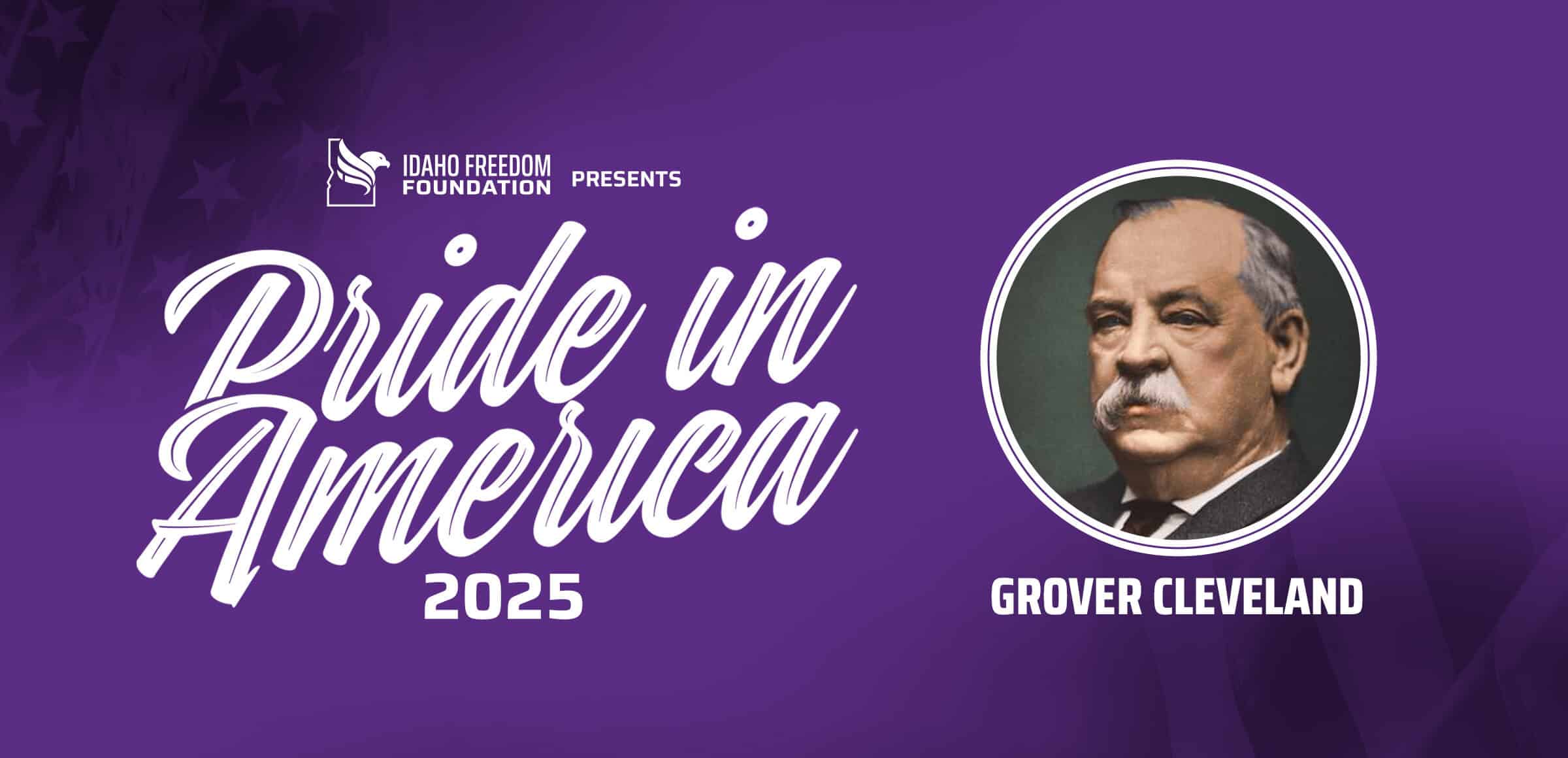


In celebration of our national heritage, we continue our Pride in America series by honoring Grover Cleveland.
Grover Cleveland, the 22nd and 24th President of the United States, holds a unique place in American history as the first president to serve two non-consecutive terms (1885-1889 and 1893-1897). A Democrat during a time when the party was shifting, Cleveland stood out for his unwavering commitment to limited government, fiscal restraint, and classical liberal values. Born in 1837 in New Jersey and rising to prominence as a reform-minded mayor of Buffalo and governor of New York, Cleveland brought to Washington a deeply rooted belief in honesty, personal responsibility, and constitutional restraint.
Cleveland’s presidency was marked by a deep skepticism of federal overreach. He frequently vetoed what he saw as unnecessary or unconstitutional government spending — most famously a bill to provide seed grain to drought-stricken Texas farmers, arguing that while the cause was sympathetic, it was not the role of the federal government to intervene. His actions reflected a philosophy that distinguished between private compassion and public coercion, believing that voluntary charity, not forced redistribution, was the ethical foundation of a free society. His firm stance earned him both criticism and admiration, and he became known as the “veto president,” issuing more vetoes than any other president up to that point.
To modern advocates of liberty, constitutionalism, and limited government, Grover Cleveland represents a kind of principled leadership that has grown rare. He stood against political machines, corporate cronyism, and expansive federal power — insisting that the Constitution was a fixed guide, not a tool of convenience. His commitment to gold-backed currency, balanced budgets, and individual responsibility makes him an enduring figure for those in the freedom movement who seek historical grounding for their cause.
Though rarely celebrated in popular culture, Cleveland’s intellectual integrity and moral courage make him a lodestar for Americans who believe that government should be restrained, honest, and accountable. His legacy reminds us that it is possible — and sometimes essential — for a leader to say “no” to popular pressure in defense of liberty and principle. For those who believe freedom flourishes best when power is limited, Grover Cleveland remains a quiet but powerful hero in the story of American self-governance.


